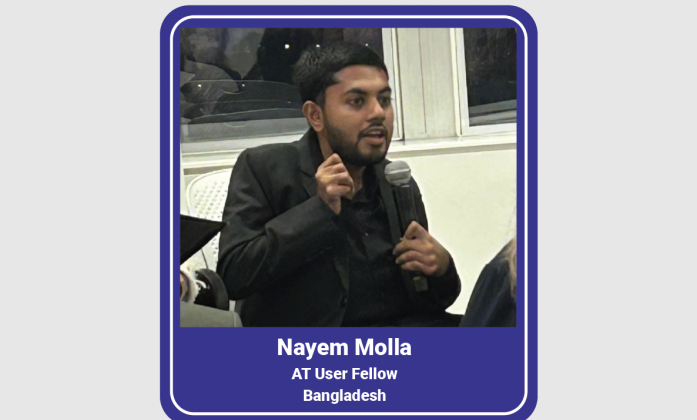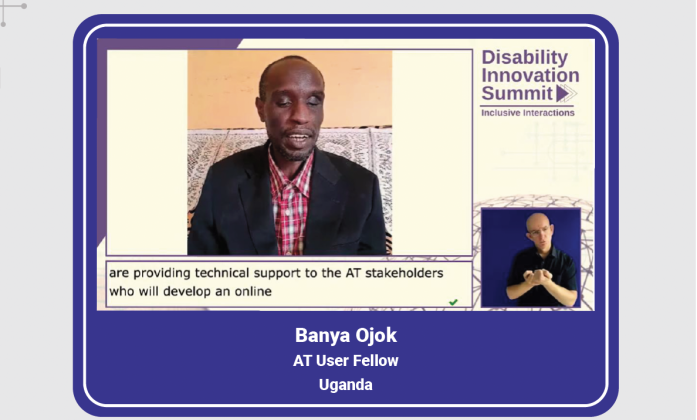A key component of IDA-GDI Hub’s AT Fellowship is to offer fellows exposure to global and regional discussions and opportunities to engage with a variety of stakeholders. The AT Fellow’s Reflection Corner is a space for fellows to share their thoughts and insights as they work on varied projects through the course of their fellowship. In this issue of the AT Digest, Nayem Molla, Bangladesh, and Banya Ojok, Uganda, share their reflections.

Nayem Molla, AT User Fellow, Bangladesh
“Attending high-level events on assistive technology and disability inclusion at the UN Headquarters has enriched my journey as an AT advocate. I had opportunities to engage with key stakeholders, share my lived experiences as an AT user, and advocate for amplifying the voices of youth with disabilities in global development dialogues. For example, while speaking at the event Poverty, inequality, education, health, gender, economic growth, climate action: Why assistive technology is an enabler to reach the promise of the SDGs, I reiterated how the lack of access to affordable assistive tech hinders our empowerment and equality.
I provided real examples of how increased AT access can reduce inequality and enable persons with disabilities like myself to claim our rights. Overall, participating in these events allowed me to share the perspectives of an often-silenced constituency, while also illuminating the intersections between AT access and human rights. Connecting with partners from governments, UN agencies, civil society, and the private sector also expanded my networks and horizons as a young leader. This exposure has expanded my knowledge and solidified my commitment to work towards a world where no one is left behind due to lack of access to the assistive technology they require. I look forward to applying these learnings to create meaningful impact.”

Banya Ojak, AT User Fellow, Uganda
“Attending the Disability Innovation GDI Summit 2023 was very informative, illuminating, and inspiring for me. The sessions covered a wide range of topics including inclusive design and accessibility, assistive technology, education, and employment for people with disabilities, healthcare, and rehabilitation, independent living, and community participation. I was impressed by the work of the many startups and nonprofits that are developing innovative solutions that are affordable and accessible to people in developing countries to address the challenges faced by people with disabilities. I learned a great deal about the importance of collaboration, and the latest innovations in disability technology and services. The summit brought me closer to AT actors from the global north and south, researchers and academicians from various universities including UCL, technologists from Google, Microsoft, and other companies, policymakers including WHO, UNICEF, Governments, and business leaders. I took the opportunity to present my personal lived experience, thoughts and ideas highlighting the need for immediate actions regarding access to assistive technology with meaningful participation of persons with disabilities and AT users in the planning, design, and implementation of anything about assistive technology. I am excited for what the future holds for disability innovation, and I am committed to doing my part to create a more inclusive world for everyone.”
